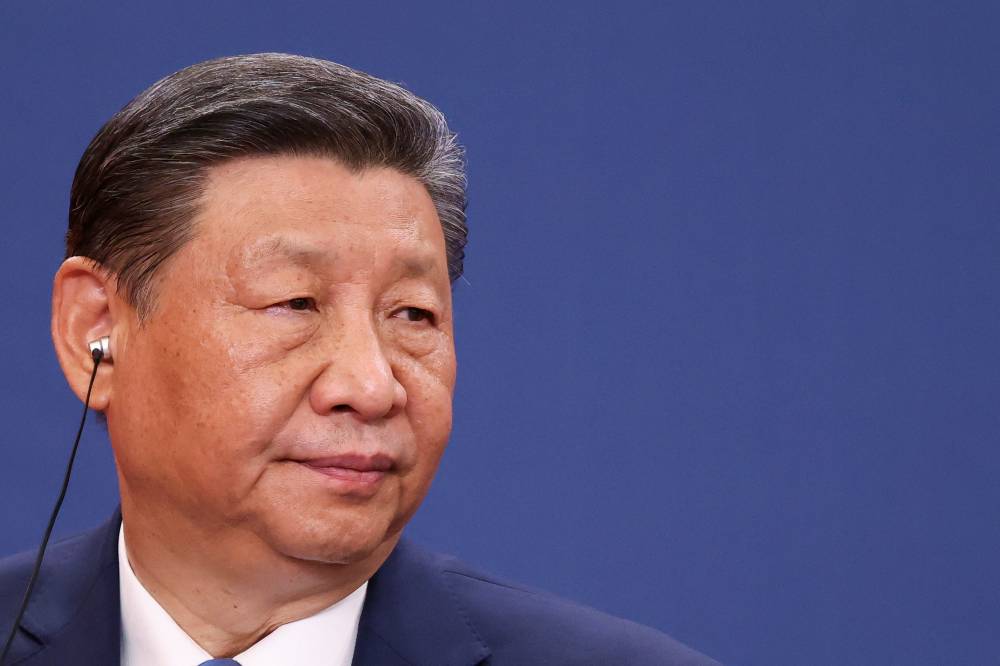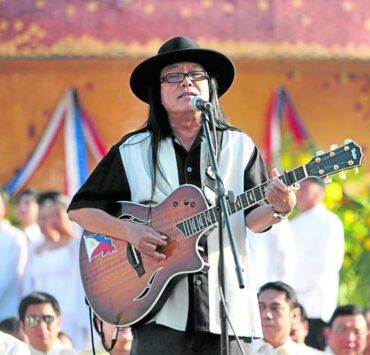China projects self as trusty ally in Asean, Gulf meeting

KUALA LUMPUR—China joined a three-way summit on Tuesday with the Association of Southeast Asian Nations (Asean) and six Gulf countries, as Beijing sought to present itself as a reliable ally to this region.
Officials see the Asean summit together with member states of the Gulf Cooperation Council (GCC) as an effort to bolster economic resilience, as they grapple with global volatility prompted by US tariffs under President Donald Trump.
Malaysian Prime Minister Anwar Ibrahim, opening the gathering between the 10-member Asean and the GCC, said a stronger relationship between the two blocs would be key to enhancing interregional collaboration, building resilience and securing sustainable prosperity.
“I believe the Asean-GCC partnership has never been more important than it is today, as we navigate an increasingly complex global landscape marked by economic uncertainty and geopolitical challenges,” said Anwar, whose country is Asean’s current chair. The bloc also includes Brunei, Cambodia, Laos, Myanmar, the Philippines, Singapore, Thailand and Vietnam.
The GCC comprises the oil-producing nations of Bahrain, Kuwait, Oman, Qatar, Saudi Arabia and the United Arab Emirates.
Talks with Anwar, Prabowo
Tuesday’s gathering by Asean and GCC is their second—following their first summit in Riyadh in 2023—and first with China.
In his address, Chinese Premier Li Qiang urged the two blocs to “strengthen coordination and cooperation and jointly uphold open regionalism and true multilateralism.”
He warned that “unilateralism and protectionism are on the rise and world economic growth is sluggish.”
Xinhua reported that Li held separate talks with Anwar earlier on Monday and called for expanded trade and investment ties with Malaysia.
Before heading to Kuala Lumpur, Li was in Jakarta over the weekend to discuss with Indonesian President Prabowo Subianto ways to expand trade and investment between China, the world’s second largest economy, and Indonesia, Southeast Asia’s largest economy.
He brought 60 Chinese business leaders for his address on Sunday evening to the Indonesia-China Business Reception, which Prabowo also attended. Li also articulated in that meeting what has become a theme of his messaging that “unilateralism and protectionism are on the rise.”
Li’s meetings come after Chinese President Xi Jinping toured the region in April at the height of Beijing’s tariff confrontation with Washington. Although the world’s two largest economies have come to a trade truce this month, Beijing is still seeking to consolidate ties with economies in this region and in the Gulf states.
Tilting toward China
Asean has maintained a policy of neutrality, engaging both Beijing and the United States.
But Trump’s sweeping tariffs came as a blow—with six of the bloc’s members among the worst hit by tariffs ranging between 32 and 49 percent.
Collins Chong Yew Keat, a foreign affairs strategy and security analyst with Universiti Malaya, said Asean is seen as tilting toward China and has failed to take strong action against Beijing’s aggression in the disputed South China Sea.
Vietnam, the Philippines, Malaysia and Brunei have overlapping claims with China, which asserts sovereignty over almost the entire South China Sea.
While relying on US defense support, the regional bloc is increasing its partnership with China and other US rivals, Chong said.
“If this continues under the current Trump administration, it will create further room for Washington to distance itself from the region, which will spell disaster and create an even deeper Chinese presence,” he said.
Anwar noted last week the GCC already has strong links with the US but “wants to be close to China, too.”
According to United Nations data, the GCC’s total commodity trade with China reached almost $298 billion in 2023, while the bloc accounted for 36 percent of China’s total crude oil imports that year.
Open to more China pacts
Meanwhile, the Philippines said it is open to any additional agreements with China that can help maintain peace in the South China Sea.
Foreign Secretary Enrique Manalo told reporters on Sunday he could not say with certainty that arrangements with China “will necessarily take place, but anything within the scope of diplomatic means or peaceful means or cooperation is certainly within our template.”
Manalo said the Philippines was determined to see how it could speed up negotiations for a maritime code of conduct between Asean and China.
Asean member-states agreed in 2002 to draft such a code, but it took them 15 years to initiate a process to start negotiations.
Last week, Asean Secretary-General Kao Kim Hourn said all sides were committed to finalizing the maritime code by next year, when the Philippines takes its turn as Asean meeting host.

















